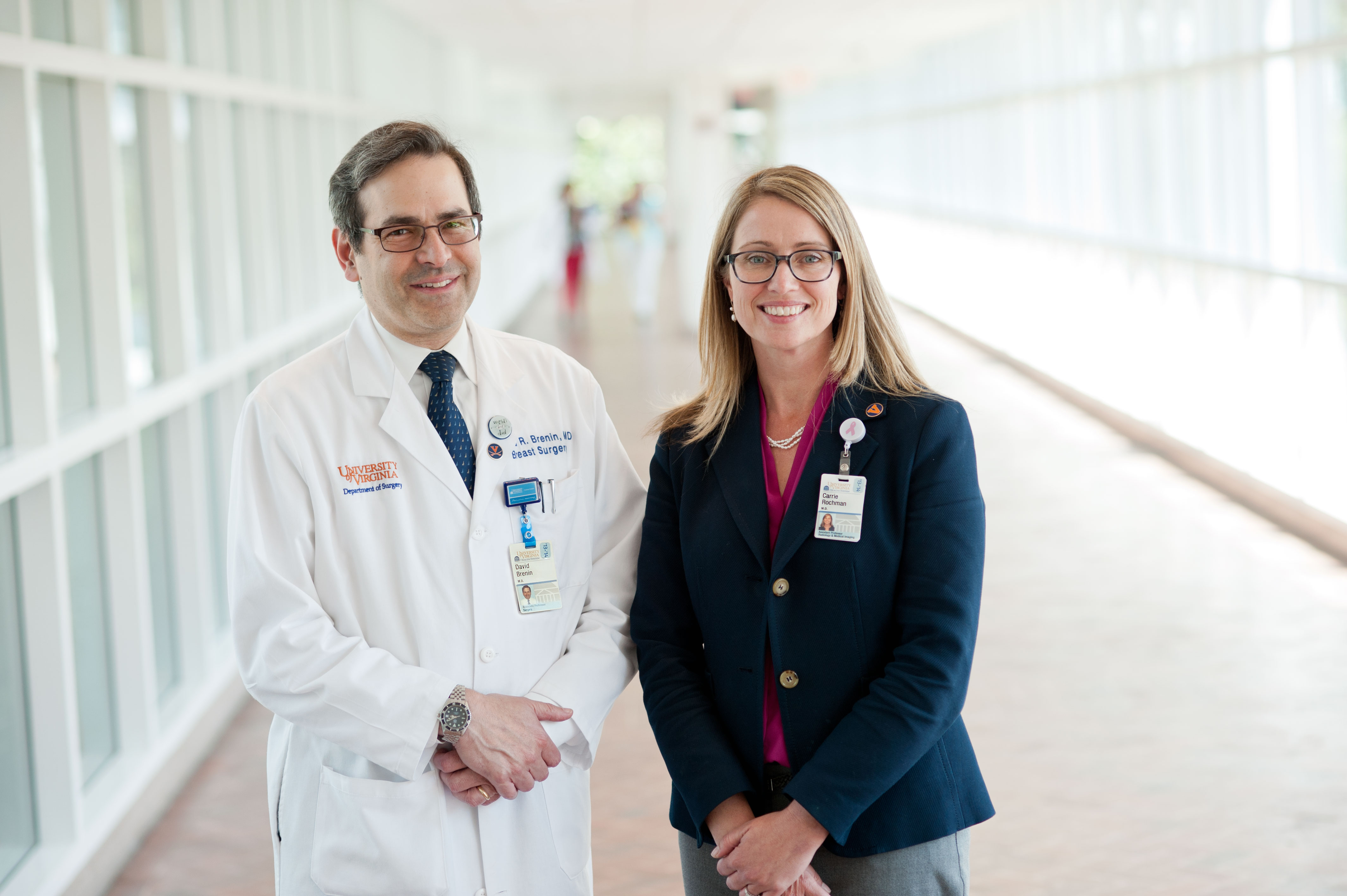Expanding its pioneering work in the field of focused ultrasound, the University of Virginia Health System has launched the nation’s first clinical trial testing the technology’s potential to treat benign tumors of the breast known as fibroadenomas.
Fibroadenomas are the most common type of lump within the breast. They often appear in young women, occurring most frequently between the ages of 15 and 35. While fibroadenomas are harmless and non-cancerous, many women consider them bothersome and wish to have them removed.
“Currently, the only way to make the lump go away is to do an operation,” said Dr. David R. Brenin, lead investigator of U.Va.’s trial. “You make an incision and remove the mass, but it leaves a scar. After the operation there is no lump, but the patient has a scar.”
Brenin and his colleagues are testing whether high-intensity focused ultrasound could offer a safe and effective alternative to surgery, one that would leave no scar. “The device is already approved for non-invasive surgery in Europe by their version of the FDA, but this is the first time it has been tested in the U.S. for treatment of fibroadenomas, or for any type of breast tumor,” Brenin said.
The high-intensity focused ultrasound, in essence, concentrates sound waves to generate heat, much like a magnifying glass can focus light. By focusing those sound waves on fibroadenomas, the U.Va. researchers can make them go away without needing to cut into the body.
“The great benefit of this approach is that we have real-time visualization, so we can watch as we perform the procedure to target exactly where we want to target,” said U.Va. researcher Dr. Carrie Rochman. The trial represents an important collaboration of her department, radiology and Brenin’s department, surgery.
U.Va. expects to test the safety and efficacy of the procedure in 20 trial participants within the next year.
“This is the first step of evaluating the device to treat tumors of the breast non-surgically,” Brenin said. “Ultimately, the goal is not just to treat fibroadenomas, but to treat other, malignant breast tumors.”
The new trial expands U.Va.’s groundbreaking research into the potential applications of the scalpel-free focused ultrasound technology. U.Va. neurosurgeon Dr. Jeffrey Elias first tested focused ultrasound in 15 volunteers with essential tremor, a common movement disorder. All 15 reported “significant improvement” in their hand tremor and in their quality of life. Elias has since launched a larger, international trial and is also evaluating the technology for its potential to reduce shaking associated with Parkinson’s disease.
People interested in being considered as volunteers for the fibroadenoma trial should contact Katie Rea, clinical research coordinator, at 434-243-0315. The trial is IRB No. 17277.
For information on U.Va.’s focused ultrasound research, or to be considered for one of U.Va.’s other focused ultrasound trials, click here.
Media Contact
Article Information
August 25, 2014
/content/uva-launches-nations-first-test-new-technology-destroy-breast-tumors

